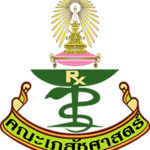Chewing vs. Not Chewing Medicine

Understanding the Distinctions: Chewing vs. Not Chewing Medicine
Ever noticed the contrasting directives on medicine labels—some urging thorough chewing before swallowing, while others warn against it? Let's delve into this intriguing topic.
For medications labeled "Chew thoroughly before swallowing," like certain antacids and carminatives for flatulence, this method enhances dispersion in the stomach, promoting quicker action by increasing surface area interaction. A notable example is medications used to bind phosphate in chronic kidney disease patients, necessitating chewing with the first bite to manage phosphate levels effectively, vital for averting complications.
Conversely, there are medications expressly forbidden to be chewed or crushed. While it may seem unusual to contemplate crushing medication, there are scenarios, such as difficulty swallowing pills or administering drugs through feeding tubes, where it becomes necessary. However, disregarding warnings against chewing or crushing can jeopardize treatment efficacy or even pose risks to health.
Typically, medications should not be crushed or chewed due to their enteric coating, protecting against stomach irritation or premature degradation by stomach acid. Moreover, drugs designed for sustained or controlled release could lose their intended effect if tampered with, potentially resulting in adverse reactions or inadequate symptom control.
Understanding these nuances is critical. While some cases might necessitate exceptions, such as for bedridden patients, seeking guidance from pharmacists is paramount. Diligently adhering to label instructions or consulting professionals can mitigate risks and ensure optimal treatment outcomes.
In essence, meticulous attention to medication labels is indispensable. Whether it's following instructions to chew or refraining from crushing, it's essential to heed these directives for safe and effective medication administration. For inquiries or concerns regarding specific medications, consulting with pharmacists or utilizing resources like the Drug Information Center at the Faculty of Pharmacy, Chulalongkorn University, can provide invaluable guidance.
Assoc. Prof. Dr. Nattada Areepiam and Asst. Prof. Dr. Bodin Tiwasuwan
Faculty of Pharmacy Chulalongkorn University
เราใช้คุกกี้เพื่อพัฒนาประสบการณ์การใช้งานเว็บไซต์ของคุณให้ดียิ่งขึ้น คุณสามารถจัดการความเป็นส่วนตัวของคุณได้เองโดยคลิกที่ ตั้งค่า
